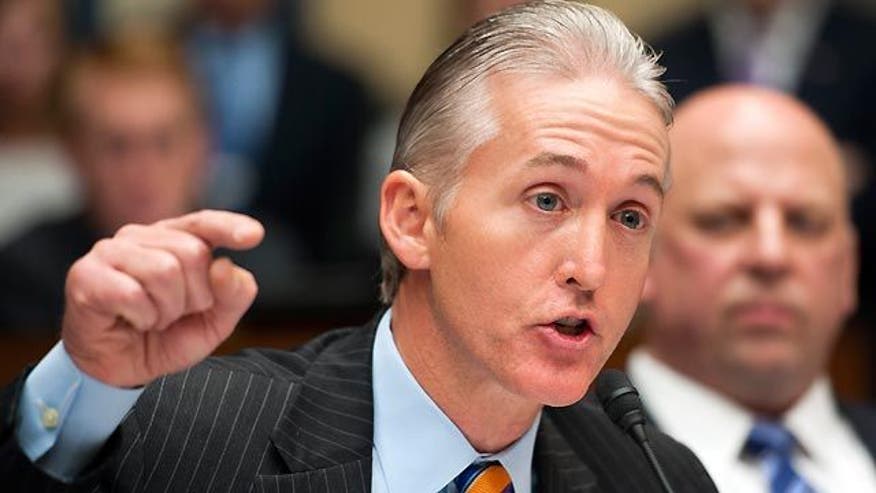Quote of the Day:
Questions only, no speechifying. Every sentence by every GOP committee member must end with a question mark. Should any committee Republican instead make a declarative statement ending in a period, the chairman should immediately, by button, deliver an electric shock through the violator’s seat.
—Charles Krauthammer offers tips for the select committee to investigate Benghazi
The Washington Post uses an Associated Press story saying that House Republicans “rammed through” the establishment of a select committee to investigate what happened in Benghazi. Well, no. The Affordable Care Act was rammed through Congress with arm twisting, unsavory deals, and unusual parliamentary maneuvers.
The select committee to investigate Benghazi was merely brought up for a vote. Unlike the Affordable Care Act, the select committee was passed with votes to spare. The count was 232-186. But the AP is right that this took place in a “bitterly divided House.” Only seven Democrats broke ranks and voted to establish the committee. Still, by the standards of contemporary Washington, that is almost bipartisan.
There is a tendency on the part of supporters of the select committee is to say that this is being done for four dead Americans. The time to come to the aid of those Americans was when one of them begged for more security in Libya and while they were fighting for their lives in the hours after the attack began. We are not a country that leaves people behind on the battle field without trying to save them. We did that night.
But now we need the truth for all Americans (though some Americans don’t want to find out what happened that night in Libya or Washington).
Indeed, Democrats are for the most part outraged by the establishment of the select committee. House Minority Leader Nancy Pelosi hasn't even decided if her members will even participate. They regard tthe Benghazi matter as closed. Or at least they want it to be closed.
Coining the phrase "Benghazi deniers," Rich Lowry outlines in his Politico column some of the things you have to believe to believe that the Benghazi matter is closed. Here is the one that I think is most important:
An administration should be able to make erroneous statements about a terror attack that killed a U.S. ambassador in the weeks before a presidential election and expect everyone to accept its good intentions afterward.
And then there is the stalling. To believe Benghazi is nothing, you have to believe this:
An administration should be able to withhold a bombshell White House email from congressional investigators and expect everyone to greet its long-delayed release with a yawn.
Republicans are taking a tremendous risk in investigating Benghazi further. In the rancid atmosphere of Washington, they risk being accused of doing this for merely partisan reasons.
But, as Peggy Noonan writes this morning, it is the right thing to do:
A Democratic former senator noted to me a few months ago that veterans and their families feel a simmering sense of betrayal. They deserve to know what happened and why.
Beyond that, history needs to be told, by which I mean future White Houses need to be told, what really happened. People in politics, of whatever party or persuasion, will need to understand that the words, "Don't—that's Benghazi" mean "Don't lie and mislead, it will hurt us." The Common Core people say our young are falling behind in math and science, and they are, but we're not exactly raising generations of moral and ethical deep thinkers, either. Those who are being trained up with a sense of right and wrong aren't likely to lead lives whose main purpose is to get a good table at the White House Correspondents' Dinner. People need to be told what happened because lessons need to be heard and internalized.
Krauthammer’s tips—which include asking questions instead of grandstanding—will help Republicans (and Democrats should they deign to participate on the select committee) get at the truth.


